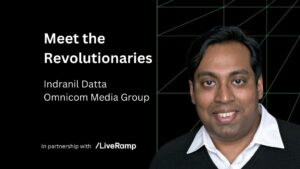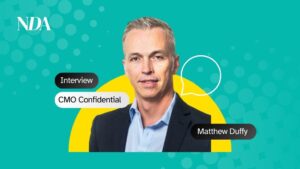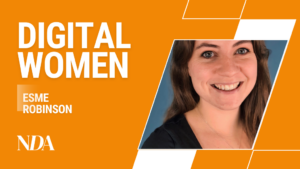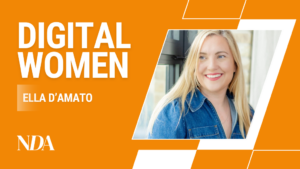The Women in Technology series, in partnership with dentsu, explores the challenges and opportunities facing women working within tech and digital media. Here, we chat to Mel Kentish, MD at Dentsu UK’s Gleam Futures.
As a woman navigating a career in tech and digital media, what key challenges have you faced along the way?
I’ve been in tech my whole working life and found myself in male dominated organisations throughout that time. During that time, I’ve found I’ve had to work twice as hard as my male counterparts to ensure that my performance outshines theirs to be considered for future progression.
There have been questions around gravitas, despite my teams being amongst some of the most engaged in the business – simply because I have a different leadership style. Today however, I embrace my authentic style to leadership, it might not be the same as everybody else, but that’s unique to me.
However, by far the biggest challenge that I’ve faced was re-entering the workforce after having children. Despite only taking a short maternity leave, I found I was discounted for roles I knew that I would have got pre-children. When I applied for more junior roles, I was told I was overqualified and so the vicious cycle continued, resulting in me acting as a consultant for some time just to stay on the ladder.
What gender gap issues persist in your industry/sector and why do you think they still exist?
The majority of the large advertising agencies are still run by white, middle-aged men. This lack of diversity restricts inclusivity in organisations and results in a lack of critical thinking and creativity. At Gleam, and more widely at dentsu in general, we have a strong support network of women across leadership positions that is combating these gender gap issues.
Whilst improving, there is still disparity in the pay of males and females in the industry. This, I believe, comes down to unconscious bias and a completely different approach between sexes when it comes to pay reviews and promotion.
Without meaning to stereotype, it’s typically more common for males to be confident of their performance to approach their managers about a pay rise, whilst females suffer way more from imposter syndrome.
What are the big opportunities for women in the tech and digital media industries right now?
Technology is enabling greater flexibility of working, allowing the workforce (both males and females) balance of family and careers. There is also increasing inclusivity, allowing employees to turn up as their authentic selves, which can only be a positive move for different styles of leadership.
What more can women do to support each other at work?
Women need to back one another. We need to truly collaborate rather than compete against one another; together we are a much stronger force.
I continually look for ways to show up for my female colleagues, be that connecting them to others or being a sounding board – it gives me such joy to lift up others.
How can men be better allies in supporting female colleagues at work?
Ask their female colleagues what they can do to help and be prepared to listen and take on board their feedback. Be present. Give them a platform for their opinions to be heard when it’s clear they’re being dismissed. Be self-aware in meetings so that they aren’t talking over, interrupting, or dismissing the views of their female counterparts.
What does the industry need to do to attract the next generation of female talent?
In two words, greater flexibility. Gen Z communities have completely different expectations of their employers from generations before. They’re much more protective over their work life balance and the ability to work remotely is expected not just desired.
We desperately need more female C-suite executives who make strategic decisions with women in mind and can act as role models for those who follow in their footsteps. This is crucial in the future success of our workforce and their wellbeing. In organisations, there needs to be actionable change and processes implemented to attract female talent. At dentsu, along with ongoing training, support and career advancement at all levels, we’ve partnered with We Are The City which helps propel and inspire women to pursue or take chances within the technology world.
What’s your proudest professional achievement to date?
My proudest professional achievement to date is the work that I’ve done at Gleam to introduce our bold manifesto, a stance for greater authenticity in the industry and calling time on filters. I feel a huge responsibility for the mental health of future generations and anything that I can do to help safeguard them is of upmost importance to me.
Are you optimistic about the future for women working in technology?
Yes. Women are incredible. Their creativity, their natural ability to foster and nurture talent, their ability to wear 100 different hats at once and manage it with grace and dignity. We have never lived in a more inclusive society where standards are questioned, authenticity reigns and experience overtakes academia.
The next era is an exciting one and I hope to help as many women as possible see what is possible and to assist them in reaching their goals.











